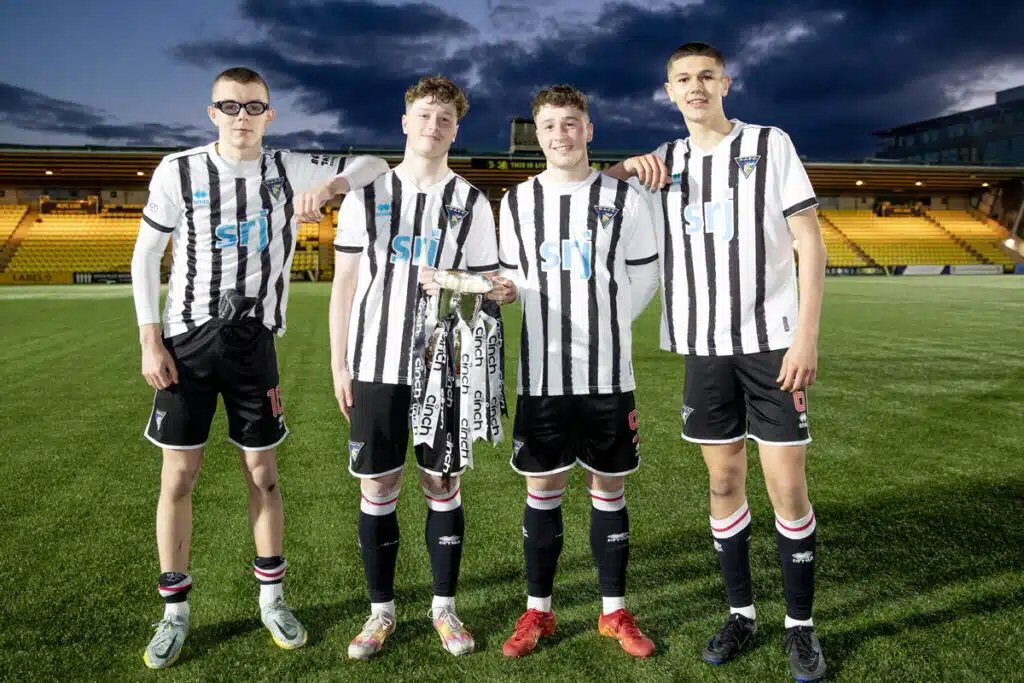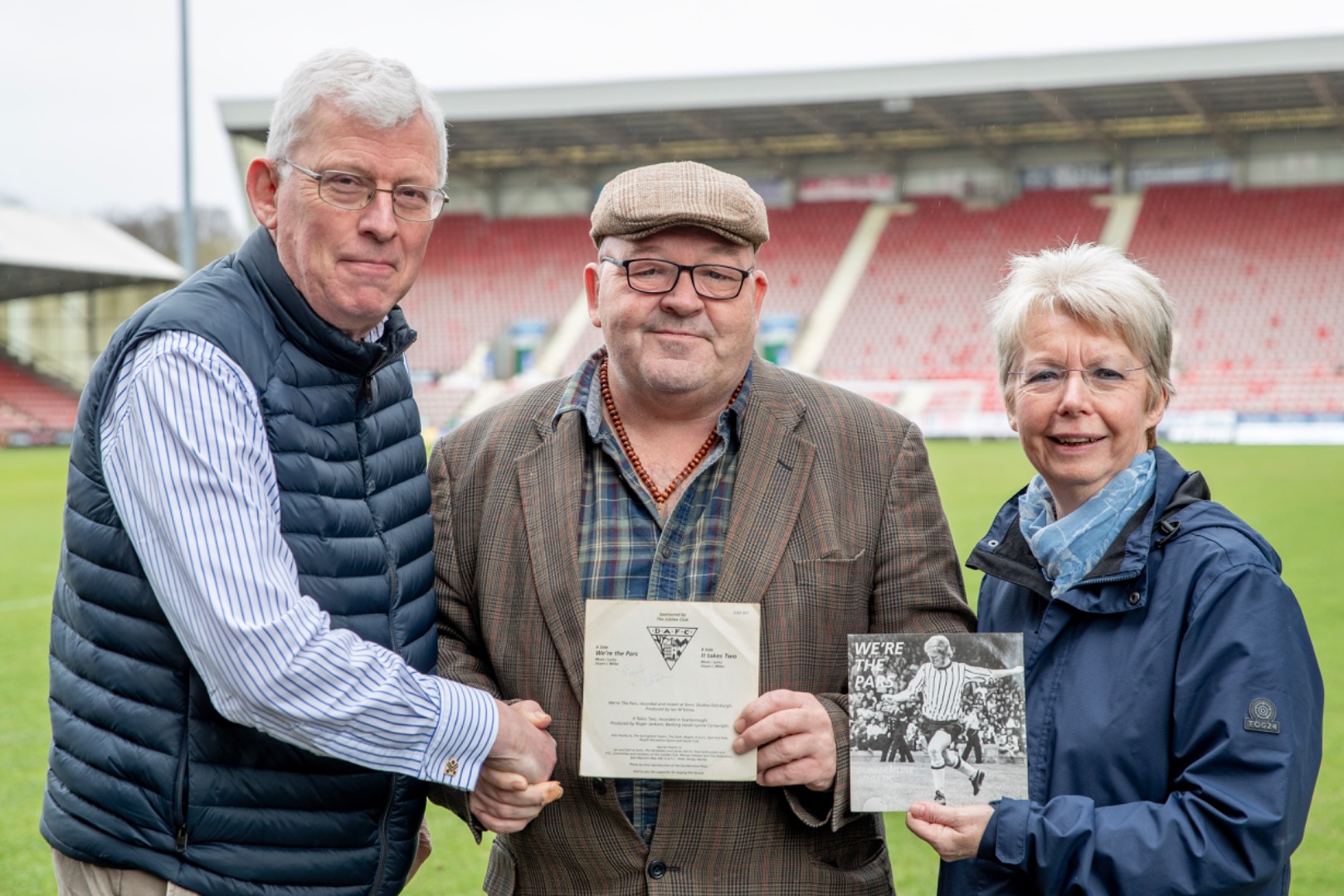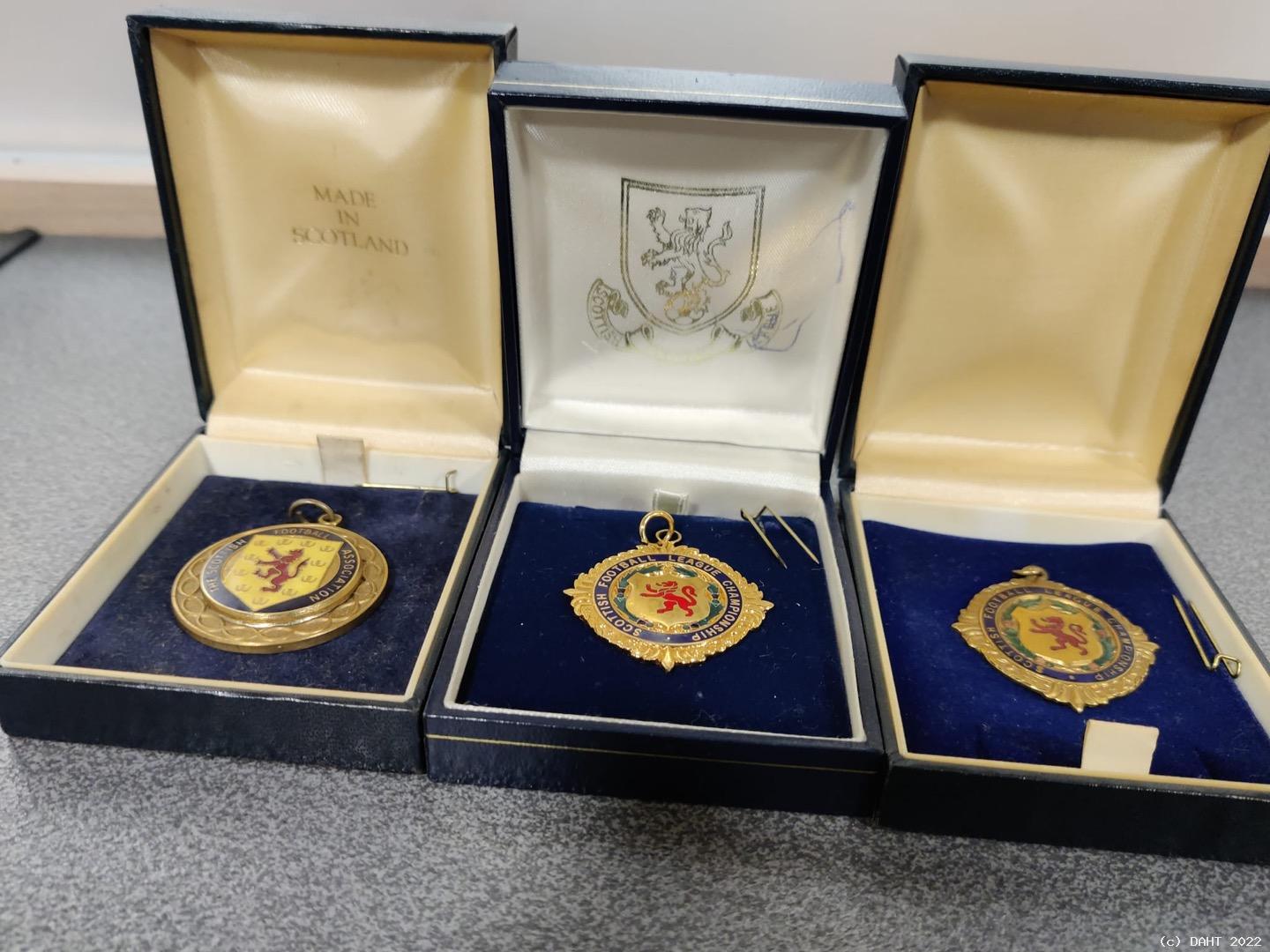Archives | David Taylor 1936-1938
A 4-0 defeat by Airdrie at the end of February ended all hope of promotion and, as the team slipped down the table, Taylor surprised the board by tendering his resignation on 10th April 1938.
In the summer of 1936 wholesale changes amongst the Board of Directors in the aftermath of yet another financial crisis at East End Park prompted the resignation of manager Willie Knight, who had just led the club to a best-ever 14th place in the Scottish League. His replacement was David Taylor, first team coach at Blackburn Rovers but better known for a seven-year stint as manager of St. Johnstone and a man with a great deal of experience in the game.
Born in Govan on 29th September 1883, Taylor`s career began with local junior side Ashfield before signing for Rangers in 1906. After a season on loan to Motherwell, he moved south to join Bradford City in September 1910 and was one of eight Scots in the team that defeated Newcastle in the replayed FA Cup Final the following April.Early in 1911/12, the strong and speedy left-back crossed the Pennines to sign for Burnley, gaining promotion in 1913 and another FA Cup Final winner`s medal a year later when Burnley beat Liverpool 1-0 at Crystal Palace.
During the First World War Taylor played as a guest for Chelsea and in 1918/19 made a handful of appearances for Celtic but a serious heart problem looked like ending his career. He spent most of the following season recuperating in Scotland before making a comeback with Burnley, helping the club to the League Championship in 1920/21.
His advancing years ensured that first team matches became few and far between and, after making 250 appearances for the Clarets, he retired from the playing side in 1924 to return north and take over the reins at newly-promoted St. Johnstone. Taylor did well to keep the Perth club in the top flight for six seasons but relegation in 1930 and a failure to go straight back up saw him quit in 1931.
Before long Blackburn Rovers offered him a coaching position but a desire to return to management saw him apply for the vacant post at East End. With a number of good players, the Athletic should have had a real opportunity to build on their previous position but the lack of money had a debilitating effect. Of the few new signings, only goalkeeper Hugh Farquharson (Hull City), centre-half Jimmy McAllister (Airdrie) and young winger Felix McGrogan (Blackburn) were able to establish themselves in the team.
Throughout the season only five victories were recorded and the Pars supporters suffered a terrible six-month run of 22 matches without a win as their club drifted towards relegation. Only a handful of familiar faces remained for 1937/38 but, boosted by a new goalscoring hero in Roland Robertson, by the New Year Dunfermline sat third in the league and looked a good outside bet for promotion. However, form tailed off and there was increased hostility from the terracing, leading Taylor to appeal to the fans to stop barracking the players.
A 4-0 defeat by Airdrie at the end of February ended all hope of promotion and, as the team slipped down the table, Taylor surprised the board by tendering his resignation on 10th April 1938.
Later that month he became manager of Carlisle United but, after a very poor season, he left the club on the outbreak of war in September 1939. His disappointing record over the previous three years may have played a part but, for whatever reason, David Taylor never worked in senior football again prior to his death in Scotland in 1949.
views: 660



